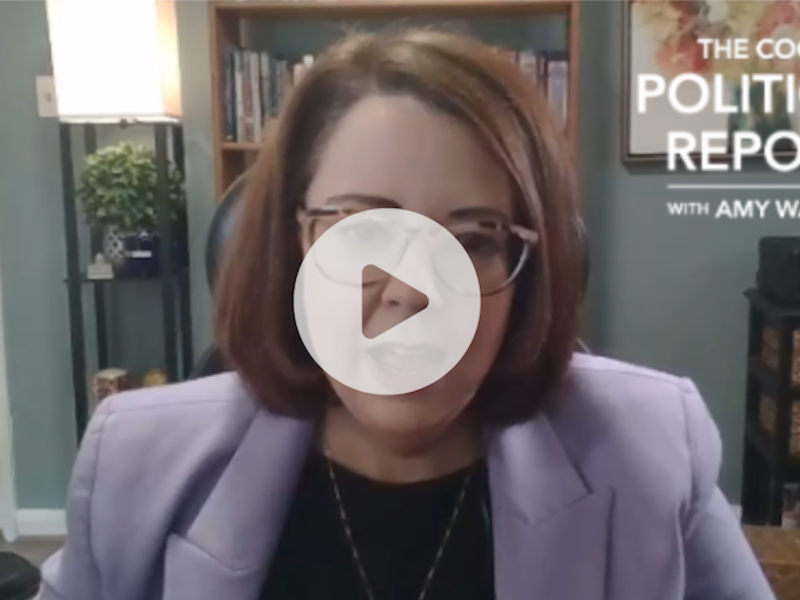
When asked in early 2002 to provide evidence that Saddam Hussein tried to supply weapons of mass destruction to terrorist groups, then-Defense Secretary Donald Rumsfeld replied, “There are known knowns — there are things we know we know. We also know there are known unknowns — that is to say, we know there are some things we do not know. But there are also unknown unknowns, the ones we don’t know we don’t know.”
The three categories of (un)certainty — known knowns, known unknowns, and unknown unknowns — are useful when trying to evaluate an upcoming election.
For example, a “known known” is that historically the party holding the White House fares poorly in midterm elections.
We can put the 2020 global health pandemic into the “unknown unknowns” category.
But, most of the energy and focus of every election is on the “known unknowns”; things or events that we know are going to happen, but we don’t quite understand the outcome or impact of those events.
Two of the most widely discussed (and most high-profile) are the upcoming Jan. 6th Commission hearings in Congress and the decision later this summer by SCOTUS on the future of Roe v. Wade.
The question isn’t just whether the nation’s highest court will overturn the 50-year old abortion rights law, or whether the commission will reveal new and explosive information about the events leading up to and culminating in the attack on the U.S. Capitol, but whether these events will have a notable impact on the 2022 midterms. More precisely, will those two events have the effect of engaging a Democratic base that is clearly less energized about this election than the GOP.
While the January 6th Commission has been busy at work, most of it has been behind closed doors. Later this spring, the public will get its first opportunity to hear about their investigation. GOP leaders have decried these hearings as part of a Pelosi-driven attempt to discredit former President Trump and the party. They argue that the public, already saturated with information about the attack on the Capitol, is ready to move on.
Democrats contend there is a lot more to learn about the attack on the Capitol. And there have plenty of leaks designed to make that very point. In recent days, we’ve learned about a 7-hour “gap” in Trump’s phone records on that day, text messages sent from conservative activist and spouse of Justice Clarence Thomas, Ginni Thomas, to White House Chief of Staff Mark Meadows encouraging him to keep the president from conceding the election, and most recently the 5-hour long closed-door testimony to the committee by Ivanka Trump.
“Members of the committee envision hearings that they hope will prove too riveting to ignore,” NBC’s Peter Alexander wrote earlier this year. “They are banking on wall-to-wall coverage on cable news, headlines on news sites and a constant churn on social media. They’re preparing to tell a story with a beginning, middle and end stretched out over two to three weeks, complete with surprises and plot twists. Viewers will see live witnesses and video presentations suited to an audience that hasn’t breathlessly followed every detail of the January 6th saga, members said.”
However, polling suggests that Democrats aren’t as invested in finding out more about the attack on the U.S. Capitol as Republicans are invested in moving on. A February Pew poll found that 65 percent of Republicans thought that “too much attention” had been paid to “the riot at the U.S. Capitol and its impacts,” compared to just 45 percent of Democrats who said “too little” attention had been paid. Twice as many Democrats (41 percent) as Republicans (21 percent) thought that the “right amount of attention” had been paid to the events of January 6th. In other words, Democrats aren’t currently clamoring for more attention to be paid to the attack.
I picked up that ambivalence and some skepticism in two recent focus groups of Democratic voters.
While all agreed that: 1) the attack on the Capitol was a crime; 2) that former President Trump was responsible for instigating it; and 3) that those responsible should be prosecuted, there was also a noted cynicism about the ability of this commission to make much of an impact.
“If Obama had done that, he and everyone he knew would be in Guantanamo,” said one African-American man. “This is how America works, if you are white you aren’t going to get in trouble.” A millennial white man argued that “it’s a terrible strategy to talk about January 6th. If Biden really wants to make his mark, focus on homelessness, mental health, cost of housing etc…. I see so much happening that the government isn’t addressing. Whatever happened a year ago in a place I don’t care about. I don’t understand why it’s an every day news cycle.”
Not all of these participants were convinced that the findings of the January 6th commission would not matter. “The reason things keep being talked about is because they weren’t being held accountable,” said a millennial white female. “The fact is that it happened and something needs to be done about it. If not, it’s going to keep happening and it’s going to go on and on and on.” Said another person in that group, “Nothing so blatant as January 6th has happened before. I don’t want it to ever happen again.”
Of course, the committee can present compelling evidence and even recommend that the president and others are criminally charged, but only the Department of Justice can follow through on prosecution. Currently, more than 750 people involved in the events of the Capitol attacks have been charged with federal crimes. But, the decision to prosecute a former president and/or his aides, would “trigger a firestorm,” that would not only thrust “prosecutors back into the partisan crossfire that proved so damaging during the Trump-Russia influence investigation and an email probe of Hillary Clinton,” but would also serve to add even more fuel to an already inflamed GOP base. Yet, if the DoJ doesn’t follow through on criminal charges, it will likely depress any already skeptical and cynical Democratic base.
Moreover, the attacks of January 6th (and the ensuing fall-out) are not top-of-mind concerns for these voters. As one white, female millennial voter put it: “In 2020, the motivation was we need to vote Trump out. There’s not the same urgency of trying to get rid of that guy. We also have so many other problems we’re dealing with.”
Those “other problems” include worries about the rising cost of living and the emergence of another COVID surge.
“I’m anxious,” said one African-American Democratic voter, “COVID goes to the 10th strain, it doesn’t seem like its getting better. We get over one hump, we get into war with Ukraine. Inflation. It seems likes prices are getting worse instead of better.”
“COVID seems like it’s getting better,” said one millennial white voter, “but you just want it to be over, but don’t know if it will be at this point.”
A new mom lamented that “raising a new child in this economy is not the best.”
Then there’s the other big “known unknown” involving abortion and the Supreme Court. Even as we wait for that decision, we’ve seen several red states enact restrictive new rules around access to abortion, while some blue states, like Colorado, have enshrined the right to abortion into state law.
Unlike 2017, however, when millions joined “Women’s Marches” in Washington, DC and across the country to show unified “resistance” to Trump and any roll-back of abortion rights, the response to these state laws has been notably muted. To be sure, there have been some protests, but not of the size and scale like we saw back in 2017.
The other thing about this ‘known unknown’ is that we don’t know exactly how the high court will rule. Do they completely overturn Roe v. Wade, or do they allow states to have a shorter, 15-week viability standard instead of the current 24-week standard? Overturning the 50-year precedent would likely elicit a more intense backlash than one that keeps the law intact but allows states to shrink the ‘viability’ window. However, in both cases, the attention would move away from Washington and over to state capitols and gubernatorial elections.
These are known unknowns for a reason. We don’t know exactly how the Supreme Court decision and the January 6th commission will turn out. But, they also aren’t happening in a vacuum. Right now, pocketbook concerns are the overwhelming worry for voters, making it hard for much else to break through.










Subscribe Today
Our subscribers have first access to individual race pages for each House, Senate and Governors race, which will include race ratings (each race is rated on a seven-point scale) and a narrative analysis pertaining to that race.